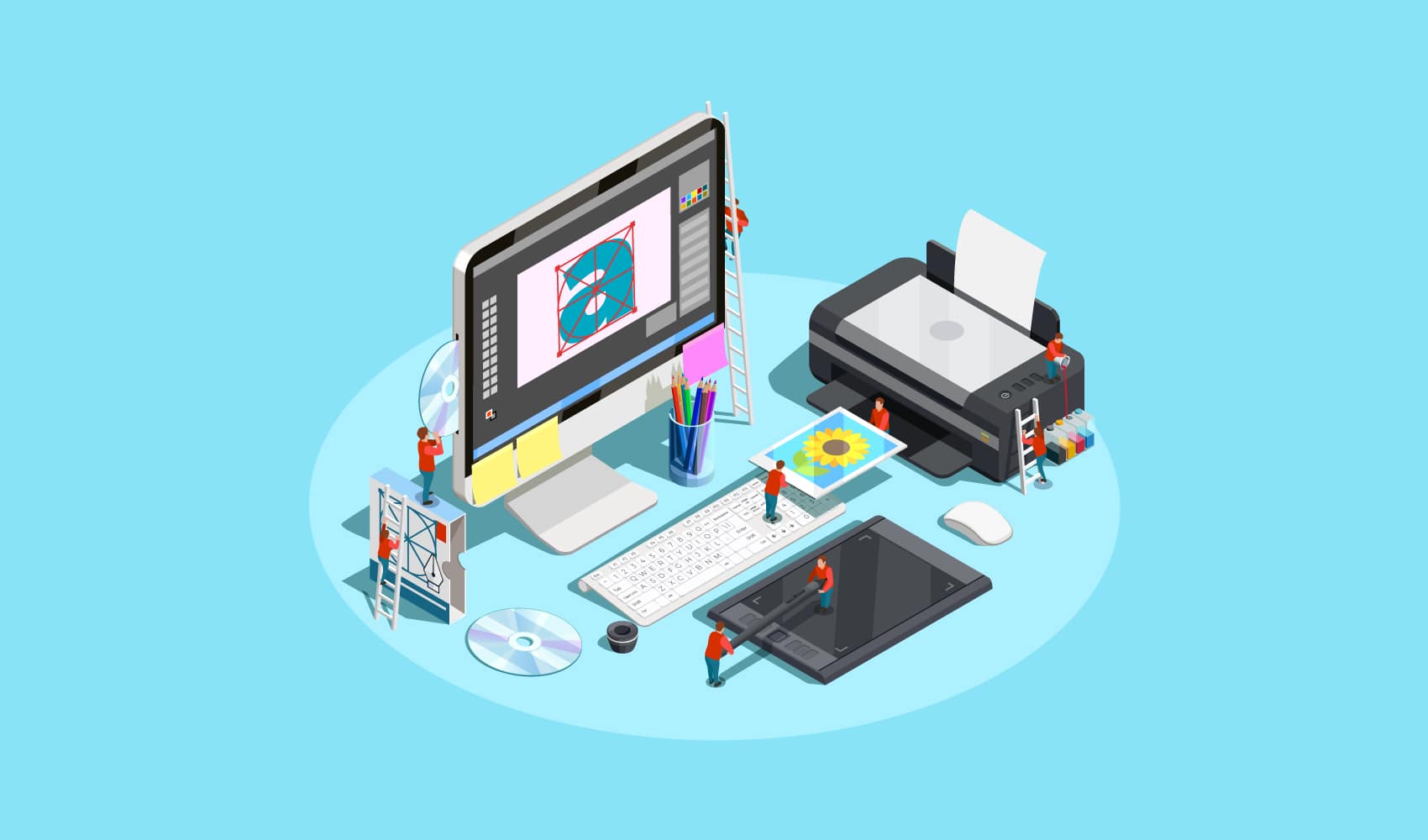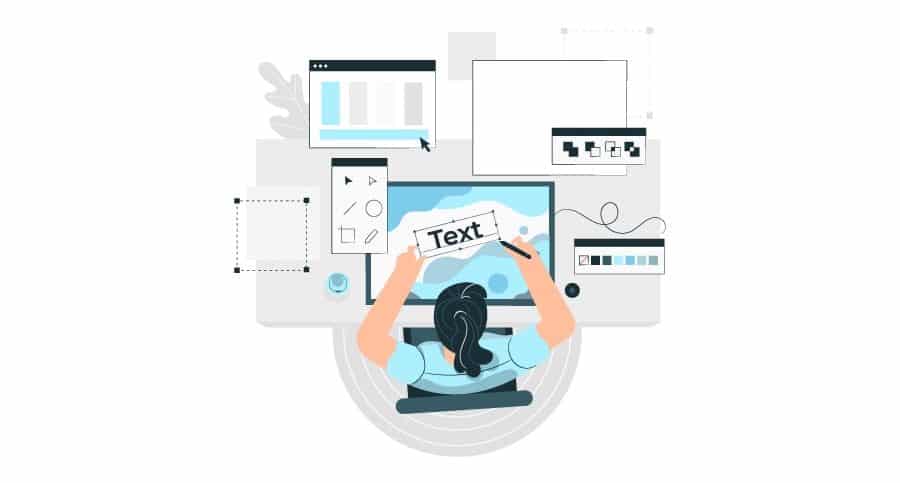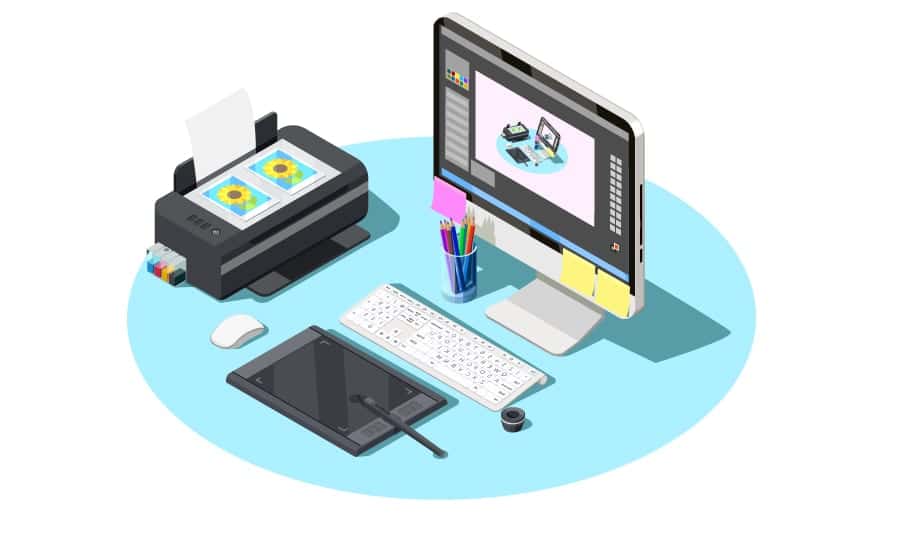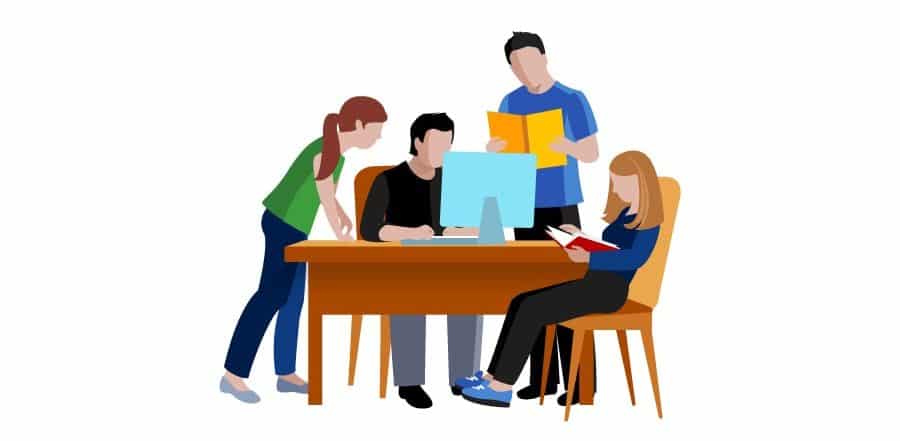
Starting a design career can be daunting, and something a lot of people are struggling with.
I recently read an interesting article in an older copy of Computer Arts Magazine (July 2019). It asked the question “What Next?”
This is what a lot of graduates are having to ask themselves – finished a course, maybe with honours, had some job experience as part of it, donned a graduation cap…
Then what?
Getting a dream job in this industry is no mean feat, so I’m going to look at how you could go about it.

The best kind of career is a design career (or so we think!)
First off, well done for choosing an amazing industry to work in. There are a massive range of jobs and services to get involved in too, such as graphic design, artworks, content writers or even WordPress web developers. As a web developer myself, I can vouch that it’s just as good as everyone says it is.
And, at the moment, it’s a growing industry. Last year, the creative industry added jobs at twice the rate of the rest of the economy.
New design agencies are popping up, and looking for fresh talent and new ways of looking at tried and tested methods.
This is good news for graduates – but it can also make things a bit trickier too.
Whilst you were competing with the rest of your classmates, you’re now competing with hundreds, sometimes thousands, of others who are also trying to start a design career.
A lot of other graduates will be in the same boat as you and will go after the same opportunities – so be prepared to have some competition.
Don’t say no to a foot in the door
Some graduates can emerge from university and expect to get a job straight away at a trained level – and skip being a junior.
You’ve just learnt all that right?
Wrong.
Work experience is something that can really set your application apart from others. It shows you’re interested enough to get experience wherever you can, and learn from a real, working agency. Something that’s very different from learning in University.
You’ll also have the opportunity to learn from the current employees, ask them what it’s like to work there, what their jobs entail and any creative insight or lessons they can give you. You might have your heart set on a role but change your mind after finding one that’s even better! The best people to tell you what a role is like are those who are doing it.
It can also give you opportunities to get links with businesses. You might complete work experience at an agency and get an interview for a job that’s coming up with them! Or you might be able to ask them for a reference when going to an interview somewhere else. It pays to have experience with real companies and get your foot in the door.
Experience is something you’re going to need if you’re after a design career, whatever level you’re at, so don’t turn your nose up at it because you’ve assumed you won’t need it.

Get a portfolio together
This is likely something you already have from Uni, but don’t just leave it there.
Complete some projects off your own back to show how passionate you are about the industry, and how good your skills are.
If you’re aiming to be a graphic designer, for example, create some briefs. You could ask friends and family for ideas and treat them as a client so you can ask for feedback and make tweaks.
Try to include a range of skills, but also what you’re passionate about. If you’re adding work to your portfolio you’re much more likely to actually do it if you’re interested in the subject. At Toast, we complete some conceptual work to get our creative ideas flowing, and it’s always good to practise.
Showing you’re interested in the role you’re aiming for enough to complete a portfolio off your own back could set you apart from those who have applied for the job but have no skills to show at the interview.
Expand your knowledge
You might think you’ve had enough lessons to last a lifetime but the truth is you never stop learning, and a design career is no exception.
Whether your an experienced, senior designer, or a junior web developer, you’re going to learn something new – nobody knows everything. Even though they might like to think they do!
If you’re truly interested in the field you’ll likely want to learn more anyway – but you can expand your knowledge and show your new skills in your portfolio too.
Going online, there are plenty of ways to learn – you could look up some videos on YouTube, invest in some courses on Lynda or read blogs and magazines like Computer Arts.
If you want to keep things free maybe stick to YouTube, or finding creative’s profiles on social media and Behance.
Don’t stop learning when you come out of uni – because you definitely won’t when you’re in a job!

Search for Opportunities for a design career
Nothing is going to happen if you’re sitting in front of the TV all day – opportunities aren’t going to come knocking on your door.
You need to do some research and find the opportunities that are out there. Job sites are updated every day with new opportunities! And don’t lose heart if you don’t find your perfect fit straight away.
It might also be a good idea to expand the type of opportunity you’re looking for. Getting into a creative job might be your stepping stone to where you want to be after a few years of experience.
And don’t immediately turn down a junior position. They’re a brilliant opportunity and, if they’re the right thing for you, can be the first step in you working your way up!
Don’t compare yourself to others
If there is one thing I’ve struggled with it’s this. Seemingly, a lot of young people compare themselves to their peers, whether they’re the same age or older.
Your fellow graduates might be getting job opportunities left, right and centre, making you feel left behind. But never fear! If you’re getting your work out there and pushing yourself to find opportunities, one will come along soon enough.
Also, don’t compare your work to others. Whilst its always good to get peer assessment and look at your friend’s or colleague’s work, it’s not good to feel disheartened by your own. Looking at other people’s work should be inspiring, not depressing. So look at what skills you could transfer to yours and how you could adapt it. Not how it’s ‘better than yours’ as this can lead to giving up.
Don’t look at your work and see what’s wrong – look and see what can be improved!

Go for it!
Once you’ve got yourself together and are pushing yourself, you might find opportunities coming your way. A design career can be fulfilling and interesting. But it takes passion, determination, and of course some creativity, so getting started needs all of that too.
